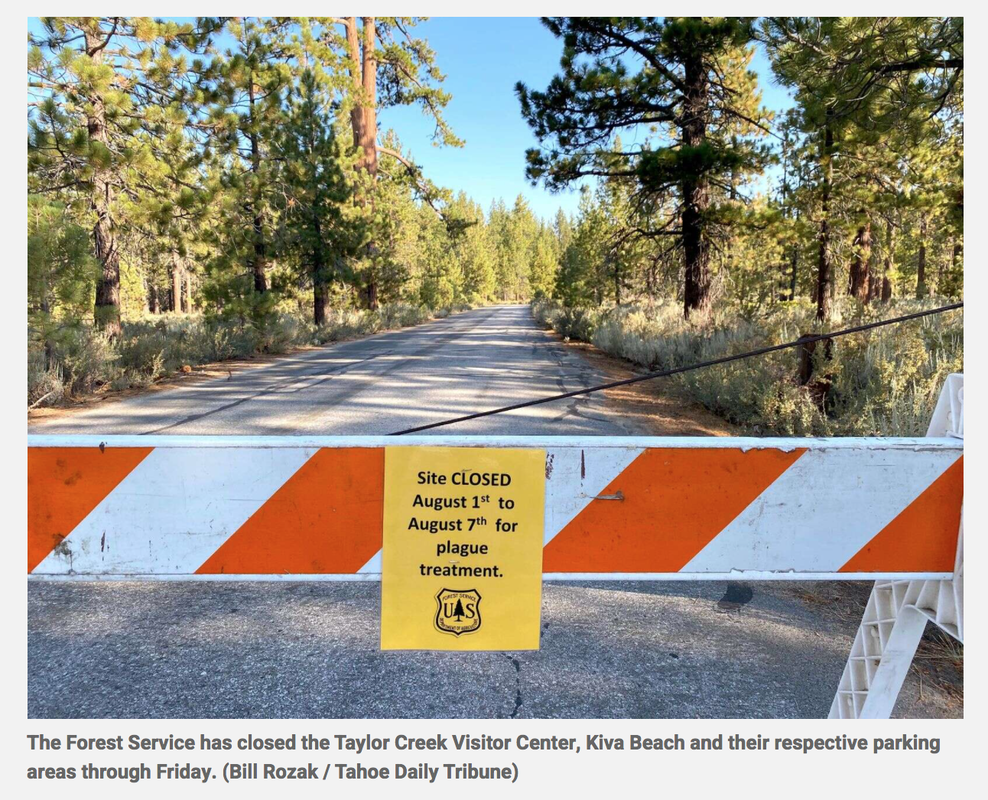The positive tests were found in chipmunks with no human contact, said El Dorado County spokesperson Carla Hass on Monday.
The Tallac Site, Kiva picnic parking area will remain open and visitor center staff and volunteers will be at the Tallac Historic Site. The Forest Service said vector control will complete its eradication treatments on Thursday and the areas will likely be reopened prior to the weekend.
According to El Dorado County Public Health, plague is naturally present in many parts of California, including higher elevations, and advises to be cautious around animals that can carry it.
“It’s important that individuals take precautions for themselves and their pets when outdoors, especially while walking, hiking or camping in areas where wild rodents are present,” said Public Health Officer Dr. Nancy Williams in a press release last year when a person was the first in five years in California to contract plague. “Human cases of plague are extremely rare but can be very serious.”
Plague is an infectious bacterial disease that is spread by squirrels, chipmunks and other wild rodents and their fleas. People can become infected through close contact with infected animals or the bite of an infected flea.
Officials say symptoms of plague usually show up within two weeks of exposure to an infected animal or flea and include fever, nausea, weakness and swollen lymph nodes. Plague can be effectively treated with antibiotics if detected early.
Plague can be prevented by avoiding contact with these rodents and their fleas, and by keeping pets away from rodents and their burrows. Human cases of plague are rare.
For more information about plague, visit the CDPH website.
To see the original article in the Tahoe Daily Tribune newspaper, CLICK HERE.

 RSS Feed
RSS Feed